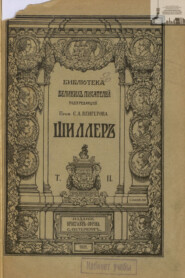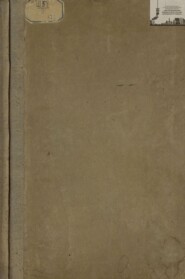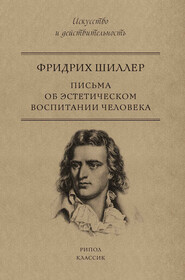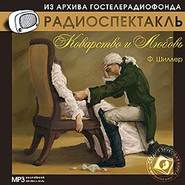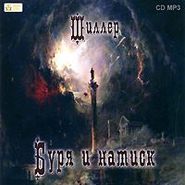По всем вопросам обращайтесь на: info@litportal.ru
(©) 2003-2024.
✖
The Robbers
Автор
Год написания книги
2017
Настройки чтения
Размер шрифта
Высота строк
Поля
FRANCIS. Will you be able to prevent it? You, too, my good Hermann, will be made to feel his lash. He will spit in your face when he meets you in the streets; and woe be to you should you venture to shrug your shoulders or to make a wry mouth. Look, my friend! this is all that your lovesuit, your prospects, and your mighty plans amount to.
HERMANN. Tell me, what am I to do?
FRANCIS. Well, then, listen, Hermann! You see how I enter into your feelings, like a true friend. Go – disguise yourself, so that no one may recognize you; obtain audience of the old man; pretend to come straight from Bohemia, to have been at the battle of Prague along with my brother – to have seen him breathe his last on the field of battle!
HERMANN. Will he believe me?
FRANCIS. Ho! ho! let that be my care! Take this packet. There you will find your commission set forth at large; and documents, to boot, which shall convince the most incredulous. Only make haste to get away unobserved. Slip through the back gate into the yard, and then scale the garden wall. – The denouement of this tragicomedy you may leave to me!
HERMANN. That, I suppose, will be, "Long live our new baron, Francis von Moor!"
FRANCIS (patting his cheeks). How cunning you are! By this means, you see, we attain all our aims at once and quickly. Amelia relinquishes all hope of him, – the old man reproaches himself for the death of his son, and – he sickens – a tottering edifice needs no earthquake to bring it down – he will not survive the intelligence – then am I his only son, – Amelia loses every support, and becomes the plaything of my will, and you may easily guess – in short, all will go as we wish – but you must not flinch from your word.
HERMANN. What do you say? (Exultingly.) Sooner shall the ball turn back in its course, and bury itself in the entrails of the marksman. Depend upon me! Only let me to the work. Adieu!
FRANCIS (calling after him). The harvest is thine, dear Hermann! (Alone.) When the ox has drawn the corn into the barn, he must put up with hay. A dairy maid for thee, and no Amelia!
SCENE II. – Old Moor's Bedchamber
OLD MOOR asleep in an arm-chair; AMELIA.
AMELIA (approaching him on tip-toe). Softly! Softly! He slumbers. (She places herself before him.) How beautiful! how venerable! – venerable as the picture of a saint. No, I cannot be angry with thee, thou head with the silver locks; I cannot be angry with thee! Slumber on gently, wake up cheerfully – I alone will be the sufferer.
OLD M. (dreaming). My son! my son! my son!
AMELIA (seizes his hand). Hark! – hark! his son is in his dreams.
OLD M. Are you there? Are you really there! Alas! how miserable you seem! Fix not on me that mournful look! I am wretched enough.
AMELIA (awakens him abruptly). Look up, dear old man! 'Twas but a dream. Collect yourself!
OLD M. (half awake). Was he not there? Did I not press his hands? Cruel Francis! wilt thou tear him even from my dreams?
AMELIA (aside). Ha! mark that, Amelia!
OLD M. (rousing himself). Where is he? Where? Where am I? You here, Amelia?
AMELIA. How do you find yourself? You have had a refreshing slumber.
OLD M. I was dreaming about my son. Why did I not dream on? Perhaps I might have obtained forgiveness from his lips.
AMELIA. Angels bear no resentment – he forgives you. (Seizes his hand sorrowfully.) Father of my Charles! I, too, forgive you.
OLD M. No, no, my child! That death-like paleness of thy cheek is the father's condemnation. Poor girl! I have robbed thee of the happiness of thy youth. Oh, do not curse me!
AMELIA (affectionately kissing his hand). I curse you?
OLD M. Dost thou know this portrait, my daughter?
AMELIA. Charles!
OLD M. Such was he in his sixteenth year. But now, alas! how changed. Oh, it is raging within me. That gentleness is now indignation; that smile despair. It was his birthday, was it not, Amelia – in the jessamine bower – when you drew this picture of him? Oh, my daughter! How happy was I in your loves.
AMELIA (with her eye still riveted upon the picture). No, no, it is not he! By Heaven, that is not Charles! Here (pointing to her head and her heart), here he is perfect; and how different. The feeble pencil avails not to express that heavenly spirit which reigned in his fiery eye. Away with it! This is a poor image, an ordinary man! I was a mere dauber.
OLD M. That kind, that cheering look! Had that been at my bedside, I should have lived in the midst of death. Never, never should I have died!
AMELIA. No, you would never, never have died. It would have been but a leap, as we leap from one thought to another and a better. That look would have lighted you across the tomb – that look would have lifted you beyond the stars!
OLD M. It is hard! it is sad! I am dying, and my son Charles is not here – I am borne to my tomb, and he weeps not over my grave. How sweet it is to be lulled into the sleep of death by a son's prayer – that is the true requiem.
AMELIA (with enthusiasm). Yes, sweet it is, heavenly sweet, to be lulled into the sleep of death by the song of the beloved. Perhaps our dreams continue in the grave – a long, eternal, never-ending dream of Charles – till the trumpet of resurrection sounds – (rising in ecstasy) – and thenceforth and forever in his arms! (A pause; she goes to the piano and plays.)
ANDROMACHE.
Oh, Hector, wilt thou go for evermore,
When fierce Achilles, on the blood-stained shore,
Heaps countless victims o'er Patroclus' grave?
When then thy hapless orphan boy will rear,
Teach him to praise the gods and hurl the spear,
When thou art swallow'd up in Xanthus' wave?
OLD M. A beautiful song, my daughter. You must play that to me before I die.
AMELIA. It is the parting of Hector and Andromache. Charles and I used often to sing it together to the guitar. (She continues.)
HECTOR.
Beloved wife! stern duty calls to arms —
Go, fetch my lance! and cease those vain alarms!
On me is cast the destiny of Troy!
Astyanax, my child, the Gods will shield,
Should Hector fall upon the battle-field;
And in Elysium we shall meet with joy!
Enter DANIEL.
DANIEL. There is a man without, who craves to be admitted to your presence, and says he brings tidings of importance.
OLD M. To me there is but one thing in this world of importance; thou knowest it, Amelia. Perhaps it is some unfortunate creature who seeks assistance? He shall not go hence in sorrow.
AMELIA. – If it is a beggar, let him come up quickly.
OLD M. Amelia, Amelia! spare me!
AMELIA (continues to play and sing.)
ANDROMACHE.







